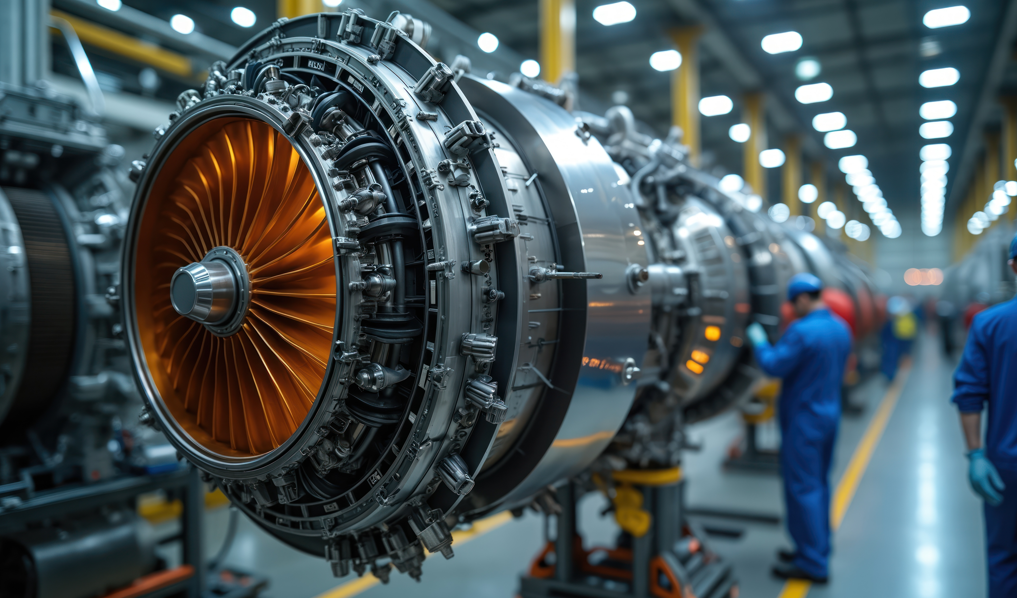The Strategic Importance of UK Aerospace SMEs in Global Supply Chains
You already know that the UK aerospace industry ranks among the world’s most robust, with British SMEs forming the backbone of this success. What you might not fully appreciate is how these small to medium-sized enterprises have become indispensable within the global aerospace supply chain, contributing significantly to the UK’s 17% share of the global aerospace supply chain market. This positioning isn’t accidental but rather the culmination of decades of precision engineering, reliability and strategic specialisation.
The aerospace sector relies heavily on the agility and innovation capacity that smaller companies bring to the table. UK aerospace SMEs have a proven track record as suppliers to the global aviation industry, often operating in highly specialised niches where larger corporations cannot match their expertise or flexibility. Understanding these dynamics is crucial, as the coming decade will see unprecedented opportunities for those who can navigate the evolving requirements of prime contractors.
When examining the supply chain architecture, you’ll notice that British SMEs occupy critical positions in tiers 2 and 3, providing everything from precision-engineered components to advanced material solutions that meet the exacting standards of the aerospace and defence industry. This strategic positioning ensures that despite their size, these companies wield significant influence over the quality, innovation and efficiency of the entire supply chain.

Innovation and Specialisation: How British Aerospace Companies Maintain Competitive Edge
Your competitive advantage in the aerospace sector often hinges on the ability to deliver specialised solutions that larger entities cannot efficiently provide. British aerospace companies have mastered this approach, focusing on high-value, knowledge-intensive niches rather than competing on scale alone.
The innovation ecosystem surrounding UK aerospace SMEs has become a model for other sectors. By fostering close relationships with universities, research institutions and larger industry partners, powerful innovation networks accelerate development cycles and keep British expertise at the cutting edge. This collaborative approach has proven particularly effective in composite materials, precision engineering and avionics – where UK firms consistently outperform global competitors.
What distinguishes the most successful aerospace companies in the UK is their ability to balance technical innovation with commercial pragmatism. Breakthrough technologies must ultimately translate into reliable, manufacturable solutions that meet stringent certification requirements. This commercial awareness and technical excellence explain why prime contractors increasingly rely on British SMEs for mission-critical systems and components.

Future Opportunities for UK SMEs in the Aerospace and Defence Industry
You stand at an inflection point in the evolution of global aerospace. As the industry pivots toward sustainable aviation, digital transformation and more integrated supply chains, British SMEs are uniquely positioned to capitalise on these shifts. Expertise in lightweight materials, fuel-efficient propulsion systems and emissions reduction technologies aligns perfectly with the industry’s direction of travel.
The defence aspect of the aerospace sector presents additional opportunities. With geopolitical tensions driving increased defence spending across NATO countries, you can expect growing demand for advanced systems where UK firms excel – particularly in areas like unmanned aerial vehicles, secure communications and sensing technologies.
As regulatory frameworks evolve, the ability to adapt to changing certification and compliance requirements will become increasingly valuable. The UK’s reputation for rigorous standards and quality assurance is a competitive advantage, particularly when accessing markets with stringent entry requirements.
To maximise your potential in the global aerospace supply chain, consider deepening your involvement in emerging aerospace clusters and innovation centres across Britain. These collaborative ecosystems allow you to share resources, access specialised facilities and build the partnerships necessary to tackle larger, more complex projects than would be possible independently.
The continued success of British SMEs in the global aerospace supply chain depends on your capacity to anticipate industry trends, invest strategically in capability development and maintain the agility that larger organisations often lack. Focusing on these fundamentals ensures that the UK aerospace industry remains a global powerhouse for decades.